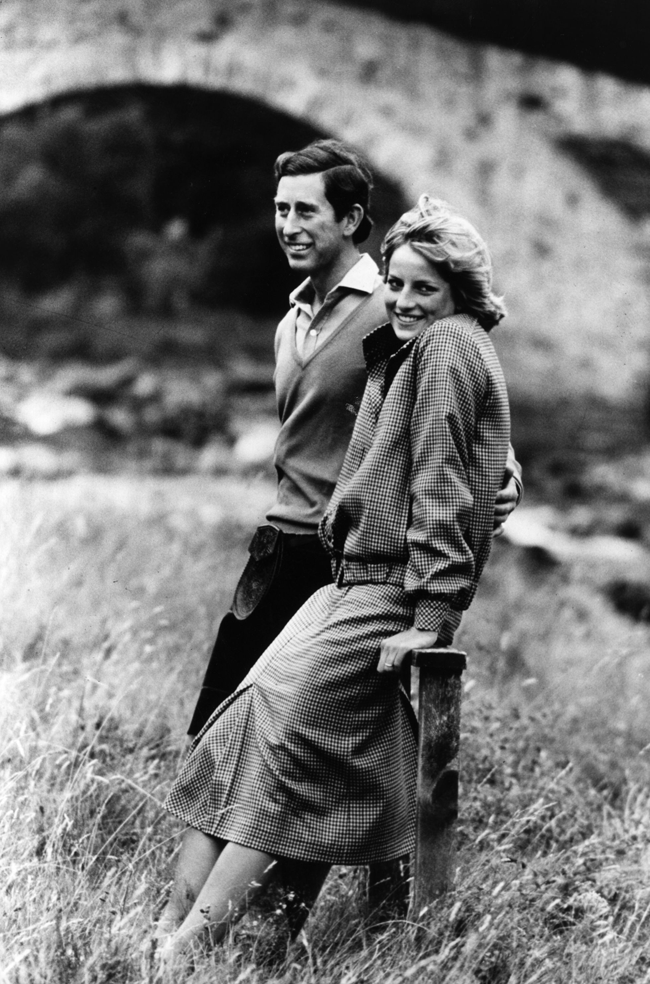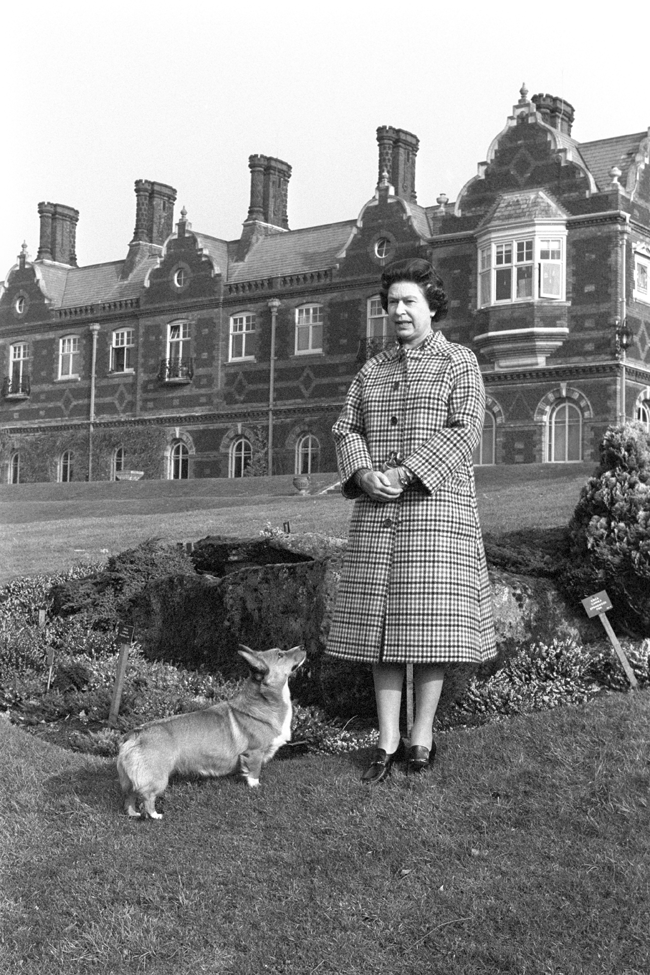Royal Secrets: Diana’s Early Days, Sandringham Ghosts and How Fergie ‘Let Down the Firm’

The Princess of Wales and the Queen attend the Opening of Parliament in London in November of 1982. Photo: Terry Fincher/Princess Diana Archive/Getty Images
We are living in maximum “leak culture” — where whistleblowers and “inside sources” rupture the news cycle daily with revelations. The concept of leaking gossip about the ruling classes has been a part of Royal life since monarchies began. But sometimes that gossip is best served cold, as proven by the slow-drip excerpts of Kenneth Rose’s second volume of diaries published in a U.K. tabloid.
The newsy highlights include never-before heard juice, such as a reported ghost at Sandringham circa 2001, with the Queen, the Queen Mum and a local parson trying to deal with either the ghost of George VI or a restless Diana on the premises. Other titillating details include a letter from Prince Philip telling Sarah Ferguson she had “let down the Firm”; behind-the-scenes decisions regarding the guest list to Diana’s wedding; the Queen’s take on cold food and Margaret Thatcher, as well as Rose’s personal observations, including his view of a young Diana Spencer: “There is something sad about a girl of 19 being led into royal captivity.”
The shiniest bits plucked from the royal biographer and long-time newspaper columnist’s private journals reflect his deep connections among royals, politicians and the aristocratic chattering classes. This volume, titled Who Loses Who Wins: The Journals of Kenneth Rose, covers the years 1979 to 2014 (the year Rose died, having kept said diaries right till the end).
Rose himself is a creature particular to his time and place: Educated at Repton — a posh Midlands boarding school founded in 1557 and boasts authors Roald Dahl and Basil Rathbone as old boys — and New College at Oxford. He also taught at Eton before turning his hand to royal biographies and columnizing about his rich and connected circle. Rose was the author of a well-received biography of George V, and, among his many royal histories, focused chiefly on the House of Windsor.
The first volume of Rose’s diaries, covering the years 1944 to 1979, was received with less fanfare when it arrived on bookshelves last December. The posthumous revelations there were chiefly about the Duke and Duchess of Windsor in Parisian exile. As the Spectator said in its review: “Few men can lay claim to have known as many of the great and the good as Kenneth Rose. From the Fifties, he befriended the Royal Family, their courtiers, prime ministers and aristocrats…. Kenneth Rose’s diaries do not make history and do not set out to do so. There are no significant revelations which will change the way we look at events or radically alter our judgments of important public figures. But they do illuminate history and give it life.”
It went on to add that he was a snob. “Nobody could write a social column in the Sunday Telegraph for more than 50 years without some snobbish instincts — but he was an intelligent one, singularly well-informed, and capable from time to time of administering a sharp bite to the noble hands that fed him his material.”
The second volume, which the Daily Mail has been excerpting at a slow drip ahead of its U.K. release on Nov. 14, offers up insights into the tabloid-era Royals from the perspective of a genuine royal insider. The revelations are not earth shattering, but they do come from what is considered to be a respectable source. And taken together—and added to the piles of decades of leaked incidents they sit upon—they paint a portrait of eccentric, upper-crusty behaviour.
To wit, we have the most flammable bit about a sort of exorcism at Sandringham House in Norfolk. It seems staff decided a ground-floor bedroom, where the Queen’s father George VI died in 1952, was haunted. But the local parson thought the space felt more ominous. “The parson said that the oppressive or disturbing atmosphere may have been because of Princess Diana: he had known such things before when someone died a violent death,” wrote Rose.
The Queen, Queen Mother and her lady-in-waiting Prue Penn all participated in a service, “not exactly an exorcism, which is the driving out of an evil spirit, but of bringing tranquility,” Rose wrote. They also prayed, reportedly, for the repose of the soul of the dead King.
The Diana revelations range from early reports Rose relays back from the kindergarten where she worked before her engagement to Charles. His sources describe her as, in his words, “not very clever, and certainly without the intellectual resources needed in marriage to the Prince of Wales.” Rose also dishes on how Diana deliberately axed relatives from her father’s guest list to her wedding who did not “bother” to attend the nuptials of her older sisters. And he cites early signs of Diana’s boredom with the robust outdoorsy life of her husband, who would go off shooting at 9 a.m. and not return till 7 p.m. Rose names his sources, revealing in 1981 that palace insider Duke Hussey (husband of one of the Queen’s ladies-in-waiting) worried whether Charles “will make a significantly good king: he thinks not. The prince is too immature, and the contrast with the firm style of the Queen will be most marked.”

There are tiny but telling details, such as the fact that Charles was left a collection of kilts by his great-uncle, the Duke of Windsor, but couldn’t wear them as they were too small. Rose predicted Diana would not lead a quiet and dignified life after the divorce: “She wants to make it difficult for Charles to become King, and to ensure that she will be the nemesis.”
Rose reveals via Lady Pamela Hicks that the Queen rarely returned her personal correspondence, save for one very long, six-page letter of remembrance after the death of one the Queen’s dogs, which was accidentally killed by another corgi from Clarence House. He also made note of the Queen’s refusal in the early years of her reign to make peace with her uncle, the abdicated King Edward, who became the Duke of Windsor. He cites the Queen’s Equerry suggesting she might heal the breach by inviting Edward and Wallis Simpson to Ascot, “where they would be swallowed up among the other guests.” His suggestion was ignored.

The Queen similarly had no time for Margaret Thatcher. Rose includes this notation from baroness-in-waiting to the Queen turned politician Jean Trumpington, quoting the Queen talking about the Iron Lady: “She stays too long and talks too much. She has lived too long among men.”
And finally, about those priceless plates. This nugget comes from Brigadier Geoffrey Hardy-Roberts, Master of the Royal Household from 1969 to 1973. When he raised the fact that gold plates mean cold food, the Queen told him succinctly: “People come here not to eat hot food, but to eat off gold plate.”
This is why Rose’s diaries ring true. You can totally see the no-nonsense monarch tossing off this gem of a quote.
RELATED:
Queen of Style: A New Book from a Royal Confidante Shares Her Majesty’s Fashion Secrets